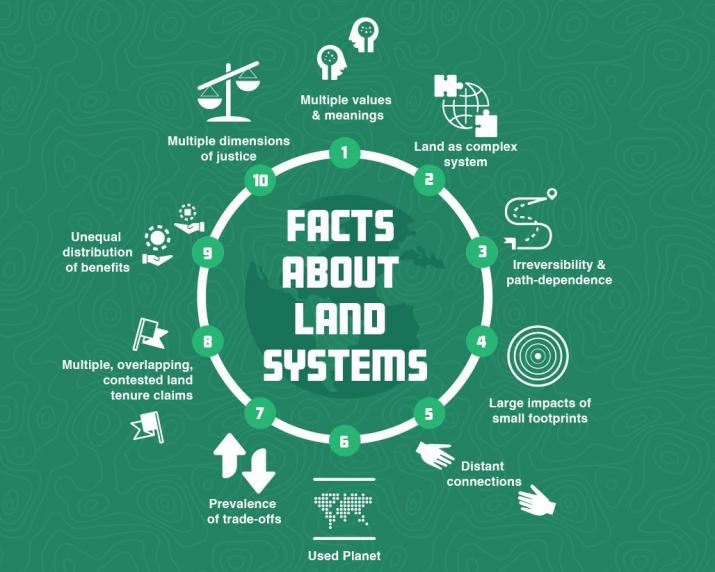
Mark Twain supposedly said, ‘buy land – they’re not making it anymore.’ The concept of land as a financial asset is just one way in which its meaning and value have been socially constructed, as a new paper on sustainable land systems explains. ‘Ten facts about land systems’ is the product of an international collaboration by scientists from 20 countries, exploring a wide range of land use impacts, interactions and challenges. The paper is supported by an engaging website encouraging the ‘wise use’ of global land, and an attractively produced report for practitioners and policy makers.
Those of us in ecology perhaps tend to view landscapes as wholly natural systems, with varying degrees of human modification. I found this report a useful reminder that if we wish our ecological research to have applied value in a landscape context, we need to recognise the cultural frame of reference from which we view land, and how that might differ from other perspectives.
Another important consideration highlighted in the paper is the rarity of ‘win-wins’ in land use change. Compromise is unfashionable, and it is understandable that groups that feel threatened tend to dig in to support, for example, land uses perceived as traditional. But trade-offs are inevitable and must be understood to achieve sustainable land use.
Prominent recent examples in the UK include the potential biodiversity impacts of tree planting for climate mitigation and natural flood management, and also some of the negative reactions to DEFRA’s new Landscape Recovery scheme from representatives of the farming community, who clearly felt that the scheme threatened the view of land as being primarily useful for food production, and conservation NGOs, which have criticised the package of new ELMS schemes as poorly planned and lacking ambition (and, interestingly, in this policy blog from the RSPB, pointed to a lack of trust from the farming community – some useful common ground?).
As the paper concludes, ‘achieving sustainability through land systems is challenging precisely because multiple beliefs and values exist; because land systems are complex … because we live on a used planet where trade-offs are prevalent, claims are overlapping and contested, and benefits from land are unequally distributed.’ Hopefully, acknowledgement of the 10 facts presented in this paper might help a few more seemingly intractable land debates to move forward.
Article press release: https://glp.earth/news-events/news/glp-land-use-scientists-urge-policymakers-adopt-new-approaches-addressing-climate
The paper: https://www.pnas.org/doi/full/10.1073/pnas.2109217118
10 facts about land explainer: http://10facts.glp.earth/
Report for policy makers: https://issuu.com/10factsglp/docs/glp_journal_r3_hi